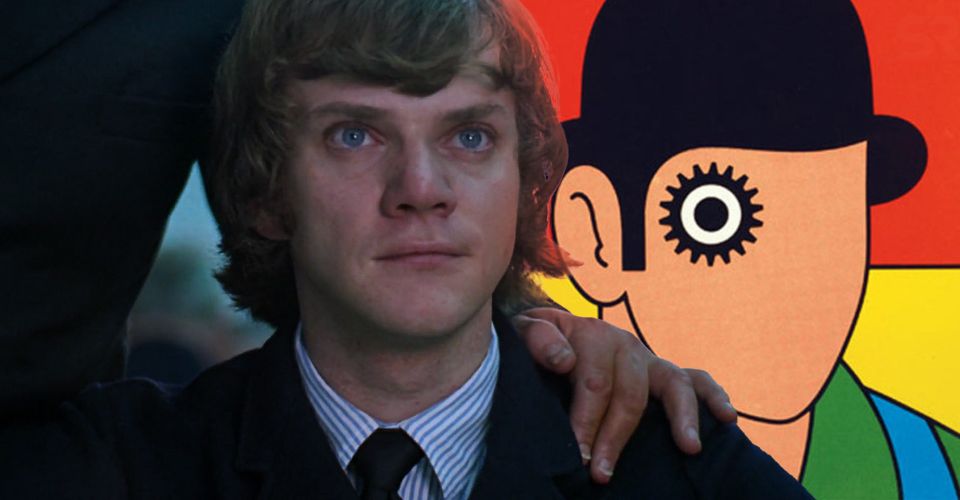A Clockwork Orange: How Old Alex DeLarge Is (In The Movie & Book)

Stanley Kubrick’s controversial literary adaptation A Clockwork Orangeremains unsettling decades after its release, but what age is antihero Alex Delarge in both the movie and the book? Released in 1971 but banned in Britain until years later, A Clockwork Orange remains one of mercurial director Stanley Kubrick’s most disturbing movies. The adaptation of Anthony Burgess’ novel of the same name tells the tale of Alex DeLarge, a young sociopath living in dystopian London.
Alex and his band of merry “droogs” are a dangerous gang of rapists, robbers, and murderers, none more lethal than Alex himself. Unforgettably portrayed by a blank-faced, disarmingly charming Malcolm McDowell, the teen with a taste for Beethoven and vicious assault is one of cinema’s most memorable monsters.
But what age is Alex intended to be in A Clockwork Orange, and why was this detail amended between page and screen? In the original novel from which Kubrick loosely adapted A Clockwork Orange, Alex is 15 years old at the beginning of the book’s action and 18 by the end. In the movie, in the hopes of lessening the controversy over the story’s viscerally upsetting content, Kubrick and company aged Alex up to 18 (or possibly 19) at the film’s start, meaning he’s closer to his early 20s by the time the story reaches its deeply nihilistic denouement. The reasoning behind this change is easy to understand, as Kubrick was evidently aware audiences would have a hard time watching a child commit the heinous acts that Alex indulges in throughout A Clockwork Orange (not to mention the torture that is inflicted upon him later in the story).

However, it’s debatable whether this approach actually worked in practice, as depicting Malcolm McDowell’s character as a slightly older teen gave the audience the sense that the character was more mature, and as such had more control over his behavior. It’s ludicrous to suggest that Alex’s horrific antics would be understandable at any age, but both Burgess’ novel and the movie adaptation are strongly critical of the heavy-handed approach the law takes when punishing young offenders. If Alex were closer to his age in the novel, audiences may have an easier time seeing him as someone capable of eventual redemption despite his horrific actions. Instead, Kubrick’s movie removes both the religious epiphany Alex undergoes in the novel and advances his age, making the character far harder to see as human.
That said, as evidenced by the decision to jettison Jack Torrance’s redemptive arc in Kubrick’s adaptation of Stephen King’s The Shining, the director wasn’t ever concerned with making his characters redeemable. The teenage monster of A Clockwork Orange is older and less easily led than, for example, the superficially similar protagonists of The Great Ecstasy of Robert Carmichael or Eden Lake, meaning audiences have a harder time seeing Alex as a victim of his circumstances. However, this is exactly the empathy that Kubrick demands of the viewer, insisting that audiences see a human behind the dead eyes of A Clockwork Orange’s Alex DeLarge where more cynical satires such as American Psycho are content to use their main characters as inhuman avatars for greed, cruelty, and avarice.
About The Author


















